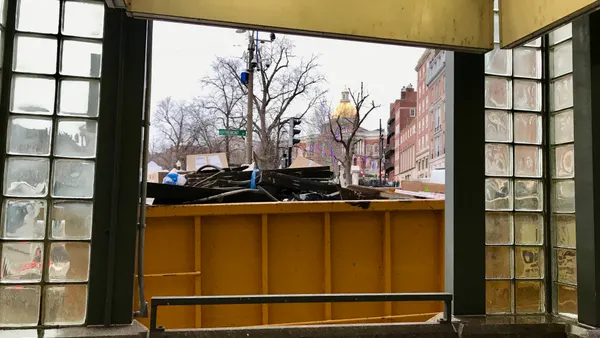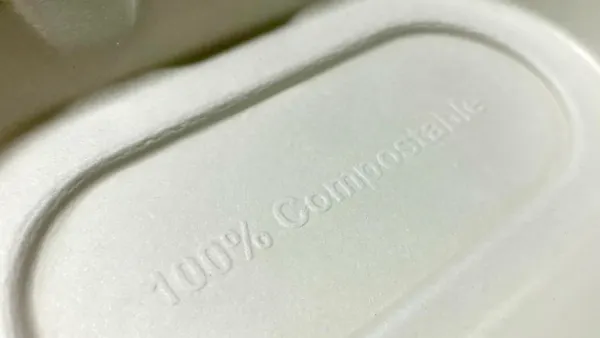Dive Brief:
- Three lawmakers in New York — one in the Assembly and two in the Senate — have introduced legislation banning plastic carryout bags, as reported by Auburnpub. Stores would keep 20% of the revenue from the bags while 80% would go to New York's Environmental Protection Fund.
- The bill, as written, would require vendors to charge customers between $0.10 and $0.25 for paper or reusable bags — a charge appearing as an individual line item on receipts. There would be certain exemptions, like bags used to carry prescriptions from pharmacies. The bill would kick in 270 days after being signed into law.
- Utah lawmakers, by contrast, are moving forward with a statewide preemption. Shortly after a $0.10 fee for plastic bags was shot down in the Utah Senate, lawmakers approved a bill that would prevent local governments from enacting their own bag bans, according to KUER. The bill passed in the Senate Tuesday.
Dive Insight:
A plastic bags task force in New York, formed after Gov. Andrew Cuomo blocked the implementation of a $0.05 fee on single-use plastic bags, was the indirect cause for the legislation in the state. While the task force didn't endorse any options over the other, it did list banning plastic bags as an option in its report from January.
The New York proposal is also modeled after similar legislation in California, which activists say have had a significant impact since implementation in 2016. However, the conversation surrounding the bag ban has been divisive, with bag manufacturers questioning the validity of the statistics that show a significant drop in bag litter.
Boston's recent decision to implement a bag bill (with bans for plastic and fees for others) could spur other cities in Massachusetts, and the Northeast region, to follow suit.
Utah's preemption bill has mirrors in other states, too. The Texas Supreme Court heard arguments in January over a local bag ban that, depending on the ruling, could create a statewide preemption. A handful of states have already implemented bag ban preemptions.
While the topic in New York and Utah is likely to remain contentious — as it has for years around the country — it is clear the handling of plastic bags can be improved.
MRFs in New York have reported, for example, spending hundreds of thousands of dollars to remove bags from equipment and dispose them each year. Plastic bags are also a publicly visible symbol in the ongoing conversation over reducing marine litter, which is an increasingly prominent concern for some industry groups and consumers.








